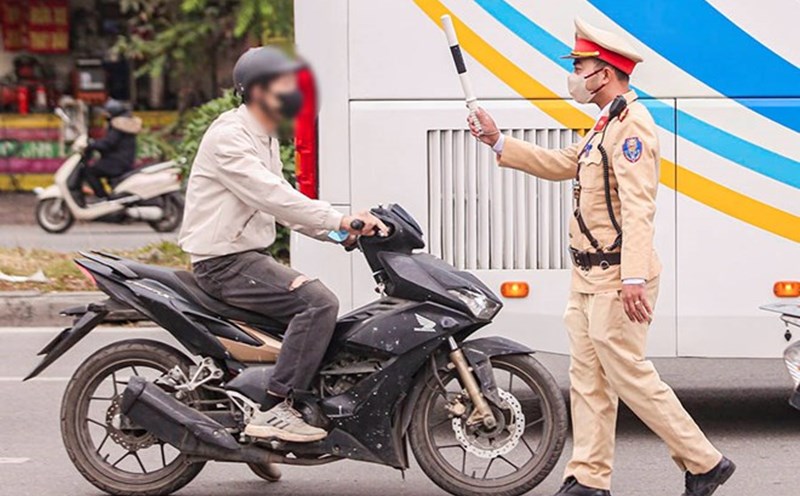On January 1, 2025, the first day Decree 168/2024 officially took effect, more than 13,000 drivers were fined for violating traffic safety order.
The estimated fine of nearly 28 billion VND is not only a remarkable number but also evokes many things to ponder.
Although as assessed by the Ministry of Public Security, people's traffic awareness has improved a lot thanks to propaganda work and increased handling of violations by the authorities.
However, the number of drivers violating the law and the amount of fines collected in just one day as mentioned above shows that awareness of traffic law compliance is still a matter of concern.
And the fine of nearly 28 billion VND is not only a financial "punishment", but also a measure of the laxity in traffic law compliance of a significant number of people.
On the positive side, nearly 28 billion VND is a large, quantitative number, helping people visualize more easily and feel more "scary" about the "punishment" for traffic violations.
But on the other hand, this amount of money can be completely "saved" by violators if they are conscious of obeying traffic laws.
In the context of economic difficulties, money is becoming more and more valuable, so individuals "contributing" tens of millions of dong just because of traffic violations is an unnecessary waste.
For example, according to the new regulations, cars running red lights will be fined from 18 to 20 million VND, instead of 4 to 6 million VND as before.
This is enough fine for an average family to prepare for Tet, instead of losing it due to carelessness or intentional traffic violations.
Therefore, civilized traffic is not only a social responsibility, but also a way to save costs and protect the wallets of each individual and family.
The large numbers of traffic violators and fines on New Year's Day are not only a wake-up call but also a great lesson about the need to comply with traffic laws.
For the authorities, this is an opportunity to continue to improve the effectiveness of propaganda, while strengthening strict inspection and supervision to build a sustainable traffic culture.
For traffic participants, changes in awareness and behavior need to come from the realization that obeying the law not only protects personal safety but also minimizes unnecessary losses of money and health.











